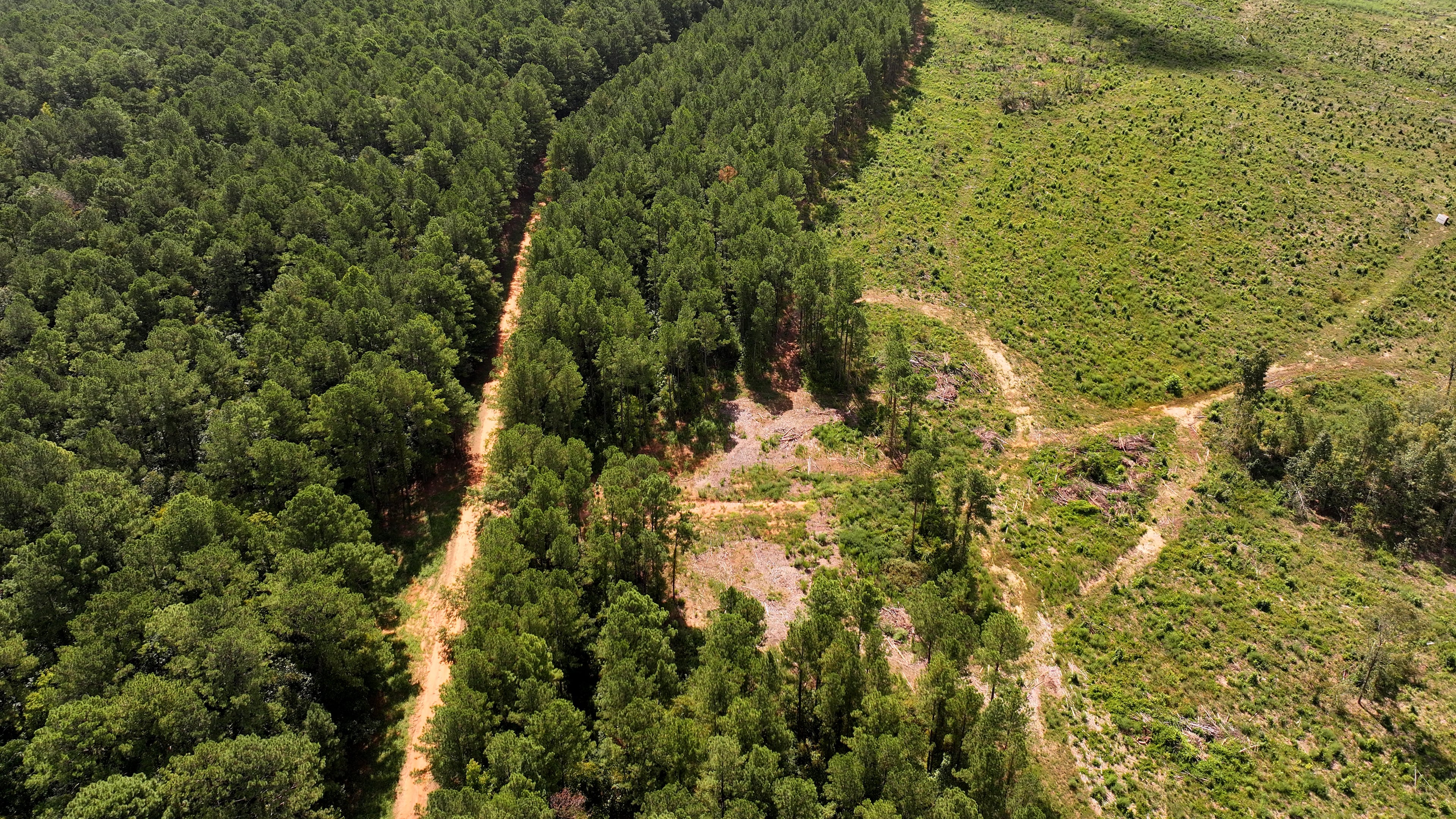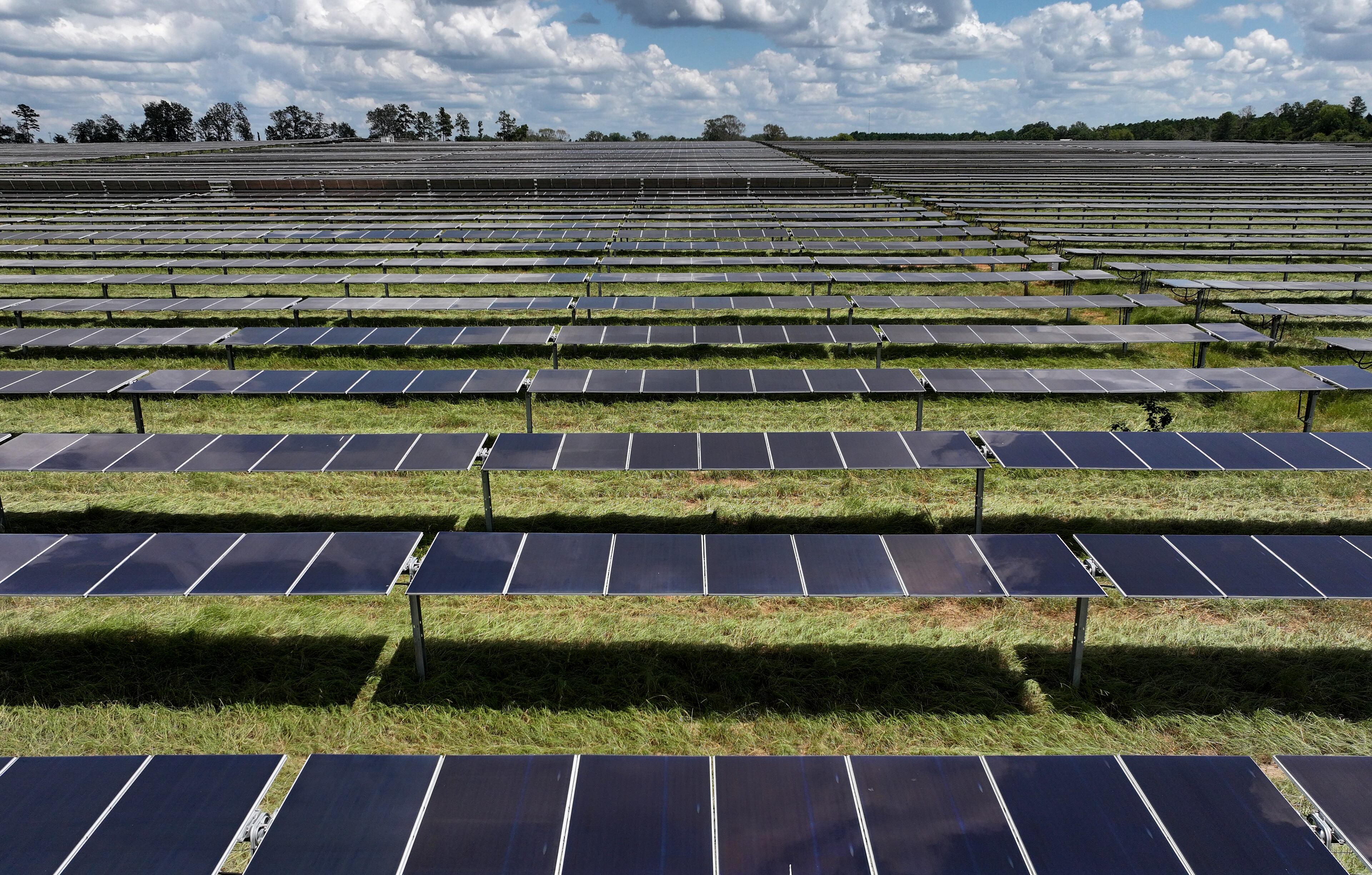Georgia county rejects $300M solar farm planned next to vital bear habitat

A proposal to build a $300 million solar power project next to a wildlife area inhabited by the state’s most isolated black bear population was dealt a major blow Tuesday, after a central Georgia county commission voted to reject the plan over environmental concerns.
As the price of solar has become more affordable and concerns about climate change grow, some utilities, electric membership cooperatives and technology giants are looking to draw more of their energy from the sun. But the board of commissioners in Houston County, south of Macon, voted unanimously to disapprove a rezoning request for the project, known as SR Robins, which would have been one of the largest solar installations in the state.
Silicon Ranch, a Nashville-based solar developer behind the project, had asked the county to grant an exception so it could install solar panels on parts of more than 4,600 acres zoned for agriculture. The company said it planned to fence off and install panels on 2,100 of those acres, leaving the rest vegetated while preserving 700 acres of wetlands on the site.

If completed, the project would have generated about 280 megawatts of electricity — enough to power 50,000 to 100,000 homes — Silicon Ranch told county zoning officials last month. The company also claimed the project would boost local tax revenues from the land from $30,000 per year to $700,000.
But the private property the company is eyeing is adjacent to the state-owned Oaky Woods Wildlife Management Area. While Oaky Woods is popular with hunters and hikers, it is also home to about 300 black bears, the largest remaining population in Middle Georgia.
GPS tracking data, compiled by University of Georgia wildlife researchers and shared with Houston officials, shows the animals regularly roam the land where the solar project is proposed.
Ben Carr, a UGA graduate research assistant who is conducting a multiyear survey of the bears, said the population around Oaky Woods is the most isolated in the state. As human development in the area has increasingly hemmed in the animals, Carr said he and his colleagues are already seeing signs of inbreeding, which could worsen if the Silicon Ranch project moves forward.

“This central Georgia bear population is historic — they’ve always been here,” Carr told the Houston County Commission on Tuesday. “This (Ocmulgee) river corridor is just a remnant stronghold, so having any available habitat which is within their core region lost is a cause for concern.”
Matt Beasley, Silicon Ranch’s chief commercial officer, told the commission the company was committed to establishing corridors for the bears to move between the solar property and the wildlife management area, while also working with the Georgia Department of Natural Resources to monitor impacts. Silicon Ranch does not own the land it was seeking to develop, but Beasley also stressed solar energy would be far less disruptive to wildlife than other potential developments on the site, such as homes or apartments.
But at a county zoning board meeting last week and ahead of the commission’s vote Tuesday, residents spoke passionately against the project.
Raye Jones, a Houston resident and retired DNR official who managed Oaky Woods for almost three decades, said he didn’t believe the project could be completed without harming the bears.
“The bottom line is that if that land is put into solar panels, the habitat will be gone,” Jones said Tuesday.

Residents and commissioners also raised concerns about sediment runoff from the site, which has been an issue at other Silicon Ranch solar projects in Georgia.
Silicon Ranch and some of its contractors were sued by a couple living next door to a 100-megawatt project the company developed in Stewart County near Columbus, which the plaintiffs claimed sent mud pouring onto their property.
Last year, a federal jury found Silicon Ranch and some of the other companies involved liable for negligence and awarded a $135 million verdict to the couple. But the judge in the case later deemed that compensation excessive. A retrial solely on the issue of damages is scheduled for next April.
In an interview last week, Beasley told The Atlanta Journal-Constitution the Stewart County verdict “was never supported by the facts in the case.”
On Tuesday, Beasley asked Houston commissioners to defer their decision to allow the company to address concerns, but the board went ahead with the vote. Post 3 Commissioner Gail Robinson said ultimately, Silicon Ranch failed to convince her that the project would not harm the surrounding area.
“I think there’s a ways to go before the county … can be satisfied that these two — the wildlife management area and the solar farm — can be compatible,” Robinson said.
In a statement, Silicon Ranch said it was deeply disappointed by the outcome, but indicated it may continue to pursue the project.
“We remain committed to this meaningful investment in Houston County and plan to continue to engage the public and local officials as we work to answer questions, address concerns, and collaborate on the right solution for SR Robins,” said Rob Hamilton, the company’s director of corporate communications.
A note of disclosure
This coverage is supported by a partnership with Green South Foundation and Journalism Funding Partners. You can learn more and support our climate reporting by donating at ajc.com/donate/climate.



